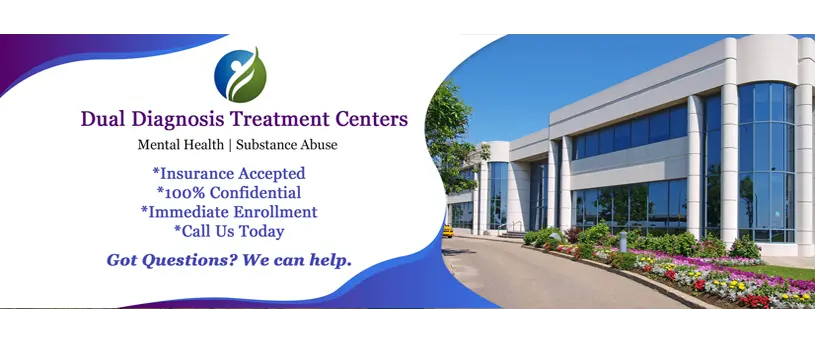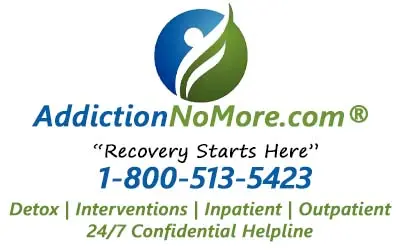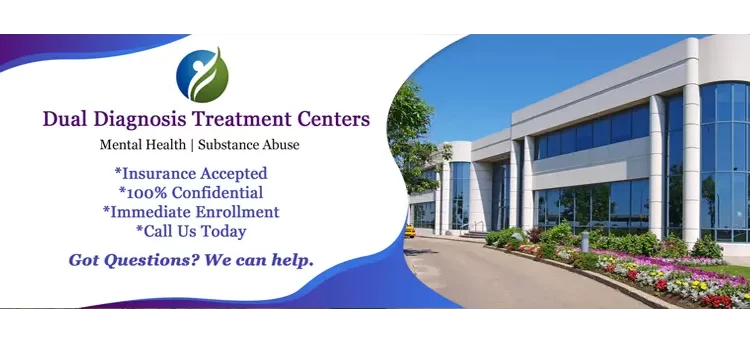Dual Diagnosis Treatment Programs in Kentucky
Dual-diagnosis treatment programs in Kentucky treat the condition of having both mental health issues and substance use disorders at the same time. Many people who suffer from mental and physical illnesses can develop a dependency on drugs or alcohol. This is called “co-occurring disorders”. Some people who are struggling with pain, either physical or mental, can turn to self-medicating with prescription pills or illegal substances and alcohol to help control their symptoms. This is the reason that it is beneficial to the client to enter into an addiction wellness rehab center for their addiction and mental health concerns.Dual diagnosis is sometimes referred to as “co-occurring disorders” or “comorbidity”. The term “comorbidity” describes two or more disorders occurring in the same person. They can occur at the same time or one after the other. Comorbidity also implies interactions between the illnesses that can worsen the course of both. Dual-diagnosis treatment programs are tailor-made to address the co-occurring mental and substance abuse disorders specifically. Many of the dual diagnosis and mental health treatment centers treat the individual by using an integrated approach, working with both psychological and alcohol or drug dependency. Dual-diagnosis treatment programs are a relatively new approach to treating addiction and have gained acceptance and significant results in treating co-occurring substance disorders. If you are having difficulties stopping the use of drugs or alcohol and have an underlying mental health issue going to an addiction wellness rehabilitation center can help. This type of program will help not only with the treatment of addiction but also help find the underlying condition that started the addiction in the first place.
Please contact us by phone for immediate assistance. This is a necessary step in beginning the recovery process for yourself or for a loved one. Our addiction treatment specialists and staff have over 25 years of experience in helping people find effective and affordable treatment for all addictions. What you tell us is completely confidential. We are HIPAA compliant. We are here to answer your questions and to get you (or a loved one) into an Addiction Treatment Wellness Program today. For immediate intake, call us now.
1-800-513-5423
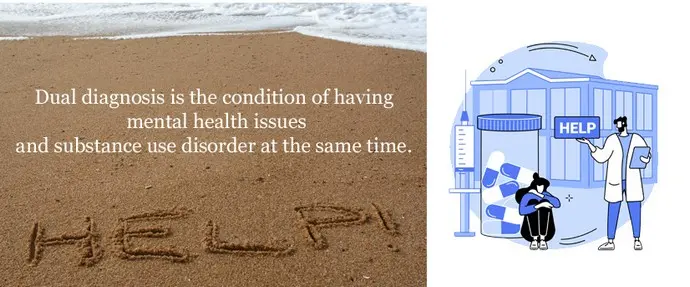
What you will learn:
Do I need Dual Diagnosis Treatment?
What type of Dual Diagnosis Program do I Need?
How much does dual diagnosis treatment cost?
Does Insurance Cover Dual Diagnosis Treatment?
Private Addiction Treatment Centers
How to Hold an Intervention for a Loved One
How we can help
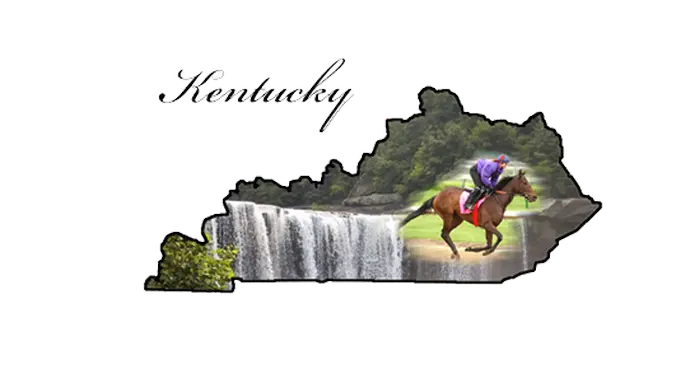
Do I need Dual Diagnosis Treatment?
A person with both a mental disorder and substance abuse problem most often shows symptoms of an apparent mood disorder that can range from dysthymia to a major depressive episode. Symptoms of anxiety are also a symptom, often mixed with signs of depression. Treatment centers with addiction wellness programs understand the struggles people with co-occurring mental issues have and are trained to handle the many different situations that can arise. Therapists, doctors, nurses, detox specialists, social workers, and counselors have been trained to help monitor patients, by monitoring physical condition and providing simple interventions to help people stay comfortable and calm. Co-occurring disorders separate dual-diagnosis clients from those who are only suffering from addiction alone. Mental illness and addiction may share many of the same symptoms and both need to be treated at the same time, to treat the whole problem. If these people do not receive treatment from a dual-diagnosis rehabilitation facility, the problems are more than likely to worsen over time.Treatment at a dual diagnosis treatment center may include:
Evidence-based treatment programs
Integrated Intervention
Medication (if necessary)
Individual or group counseling
Self-help measures
Lifestyle changes
Peer support
Private rooms
If you are ready to stop this cycle of addiction, give us a call and we can discuss treatment options in Kentucky today.
1-800-513-5423

What type of Dual Diagnosis Program do I Need?
Dual-diagnosis drug rehab centers are mainly divided into three categories:Intensive Outpatient Program (IOP): To deliver a fully rounded outpatient program for those suffering from co-occurring mental disorders and substance abuse issues, treatment should consist of daily monitoring and counseling for at least the first 30 days. Finding a program that can adjust medications and completely change them if needed, in an outpatient setting can be difficult unless you have private health insurance. Most state-funded outpatient treatment programs are not set up to handle dual-diagnosis clients and the complexities that these two conditions can pose to a treatment team. IOP consists of daily, to weekly meetings and 1-1 counseling. The client lives at home while undergoing treatment. Programs are specifically designed to allow the individual to stay at home while engaging in active treatment for their condition. Intensive outpatient programs (IOP) are for people who do not require intensive interventions or convincing to enter into treatment.
Inpatient Rehabilitation Centers: Inpatient treatment for those with co-occurring mental illness and substance abuse disorders, offers treatment in durations from 28 days of intensive inpatient treatment, up to 6 months in some transitional drug rehab programs. The length of the program does not always translate to a better success rate, however. Individual success is solely dependent on the individual, their needs, and the level of care needed to ensure full delivery of the program before completion of the time on the said program. Clients stay at the center and are monitored 24 hours a day by licensed therapists, doctors, nurses, detox specialists, licensed clinical social workers, and counselors. Clients may or may not be permitted visitors depending on the program rules. Programs usually consist of 28-day treatment followed up by outpatient counseling and doctor visits to evaluate medications and adjust accordingly if necessary.
Partial hospitalization treatment centers OR PHP Programs: PHP Programs utilize office space in a separate building to counsel and treat dual-diagnosis clients. Therapy usually consists of 6 hours of treatment, 5 days a week, and Saturday activities, leaving Sunday for reflection and homework. This type of program utilizes upscale apartments for housing and has security on site 24 hours a day for the client’s safety.
Types of therapies offered may include:
Motivational Interviewing
Motivational interviewing when used for substance use disorders incorporates a therapeutic approach to treatment that addresses your resistance to change while working to increase your motivation to accept change in your behavior. It is designed to help reinforce a person’s motivation towards a specific goal by exploring a person’s reasons for change while in an environment of acceptance, compassion, and collaboration.Biofeedback & Neurofeedback Therapy
Biofeedback, also known as neurofeedback, uses an EEG machine to gather information about the brain by monitoring brain wave activity. Using technology, the device sends information through electronic sensors and software that can read the incoming brainwave data. This allows for the professionals to map the brainwave activity. It helps the expert develop and understand which neuro pathways have become blocked or deregulated in the individual like a person who has been recovering from drug addiction.Medicated Assisted Treatment (MAT) Services
MAT Services or Medicated Assisted Treatment are programs that provide medications to ease withdrawal symptoms while undergoing counseling to help people who have to rely on their medications to get by from day to day. People who have become dependent on their opioid medications, heroin, or alcohol can benefit from MAT services in their area. These programs have proven to be effective in helping lower the overdose rate in the country as well as saving lives. Studies have shown MAT services are safe, reduce overdoses, increase treatment retention, and improve social functioning. The main goal of MAT programs is to help people make a full recovery, and be productive and independent while undergoing treatment for substance misuse. Some of the medications used in Medicated Assisted Treatment include Buprenorphine, Methadone, Suboxone, or other maintenance medications.Cognitive Behavior Therapy (CBT)
Cognitive Behavior Therapy focuses on finding out exactly what needs to be changed and what doesn’t and then works by targeting those areas. People who come for therapy need to change something in their lives, whether it is how they feel, how they act, or the way other people treat them. In Cognitive Behavior Therapy, the therapist doesn’t settle for just nodding wisely while you carry the whole burden of finding the answers you came to therapy for. The therapist takes an active part in helping you to solve your problems. It is important that at the beginning of the treatment, a diagnostic workup is made to make sure that your needs and problems have been pinpointed as well as possible. This step is most crucial and it is often skipped or omitted altogether in traditional kinds of therapy. Without this step, it would be impossible to make an explicit, understandable, and flexible treatment plan that would accurately reflect your own needs. CBT in this respect, resembles education, coaching, or tutoring. Under expert guidance, you will share in setting the treatment goals and deciding which techniques work best for you.Dialectical Behavioral Therapy (DBT)
Dialectical Behavioral Therapy also known as DBT maintains that some people, due to their environment, during their early years, and also due to biological factors, are more apt to react abnormally to emotional stimulation. This type of person is more prone to have their arousal level stimulated more quickly and have that sense peak at higher levels. It also takes more time for this type of person to return to a normal baseline. This is why some people have crisis-strewn lives and EXTREME EMOTIONAL LIABILITY (emotions that shift rapidly). It has also been noted that this person does not possess methods for coping with these sudden intense surges of emotion. DBT is a method for teaching skills that will help with this task.MRT (Moral Reconation Therapy)
Moral Reconation Therapy or MRT is a systematic step-by-step treatment strategy designed to enhance self-image, promote the growth of a positive, productive identity, and facilitate the development of higher stages of moral reasoning. MRT has been extensively researched and proven effective in populations with a high rate of antisocial behaviors. MRT seeks to re-educate clients socially, morally, and behaviorally to instill appropriate goals, motivation, and values. Studies have shown that this program significantly increases the participant’s odds of success. MRT is an open-ended program allowing clients to enter the program at any point in their supervision.PTSD Treatment Centers and Residential Trauma Centers
There are many new therapies for treating Post Traumatic Stress Disorder (PTSD) and addiction together. These programs have been proven to treat the symptoms and the cause of PTSD, all of which will help in the treatment and handling of PTSD with addiction in those seeking help. Depending on the facility and the training of the therapists, most facilities are experienced in treating some of the symptoms of PTSD, if not all of them. Therapy models and practices that can be included in a program for PTSD and trauma can include Cognitive Behavioral Therapy (CBT), Eye Movement Desensitization and Reprocessing (EMDR), meditation and mindfulness training exercises, group processing, individualized therapy, Biofeedback, and neurofeedback. All of these therapy models have proven to help with the treatment of PTSD and trauma in both women and men.Call us and we can help you understand and locate the right addiction treatment wellness program that will work for your specific needs and goals.
1-800-513-5423
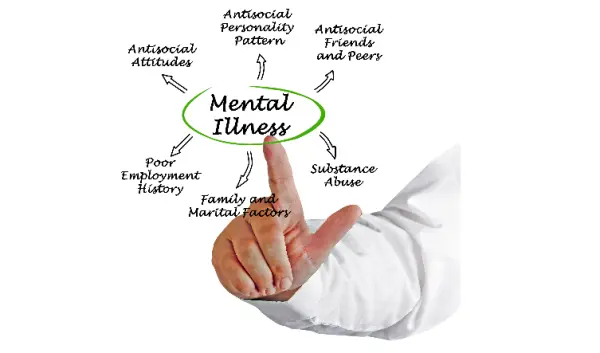
Mental Illness and Addiction can cause other issues in your life such as Antisocial Personality Patterns, Antisocial Friends and Peers, Substance abuse, Family and Marital Factors, Poor Employment History, and Antisocial Attitudes.
How much does dual diagnosis treatment cost?
The first thing most people ask is “How much does a dual-diagnosis drug treatment program cost?”. Paying out-of-pocket for treatment at a private drug rehab can vary from $5000 a month up to $60,000 a month. Most programs do not cover the cost of any medications that are prescribed, so either your insurance will pay for it or you will have to cover the cost yourself. Not all programs are all-inclusive and “spending money” is necessary at all treatment facilities. Addiction treatment centers have many options for payments such as payment assistance, personal loan options, work programs, and more.
Will Insurance Pay For Dual Diagnosis Treatment?
Most facilities that offer a dual diagnosis program will accept insurance plans. Our addiction specialists can let you know if your insurance provider will cover the cost of treatment. Dual-diagnosis treatment programs in Kentucky can vary in price but most take some form of insurance such as BCBS, Aetna, or Medicaid. Your insurance plan and coverage for mental health will determine what your insurance will or will not cover. The intake counselor will go over with you what your co-pay and financial responsibility will be and will either set up payments or expect payment in full before being able to enter their program. Private treatment centers for addiction will accept private health insurance and most PPO plans. Those who have HMO insurance plans will typically have to stay within their insurance provider’s network to utilize the maximum benefits available for treatment. Our Staff is trained to help you find out what exactly your insurance plan will cover, and help you minimize your out-of-pocket expenses to ensure that you can get the maximum benefits available for addiction and mental wellness treatment in Kentucky.
1-800-513-5423

Private Addiction Treatment Centers
Private drug rehab centers will offer a program very similar to their public counterparts. A private dual-diagnosis treatment program will have more one-on-one counseling and offer more of a comprehensive program delivered in a shorter time frame. One of the main reasons that private drug rehab can offer and deliver a more comprehensive program is due to funding and the ability to have a lower staff-to-client ratio. This results in a program that delivers more one-on-one therapy during a 30-day period. The amenities that are offered in a private or ultra-private rehabilitation center for clients with co-occurring mental issues and substance abuse disorders can range from a luxurious resort-type setting to a lower-cost program where you share a room with 1 or more clients.If you are looking for a more private setting to ensure that your confidentiality remains private, the best solution is to go out of state for treatment. It is sometimes beneficial for the client to go to treatment further away from home. Getting away from temptations and friends who may still be using is often better for many people. Clients who go to rehab in another state also have a harder time leaving treatment early as well. The chances of running into someone you know are very low, ensuring your anonymity. Depending on the situation, our counselors may suggest looking for substance abuse programs that are a plane flight away.
Kentucky is seeing more and more cases of people who are coming to treatment needing dual diagnosis treatment options. Due to bed availability in public treatment programs, there now are private programs that offer lower-cost options for treatment in Kentucky. Lower-cost addiction wellness programs for addiction to drugs or alcohol will be a step up from a state-run rehab or publicly funded treatment center. You may still have to share a room but the program will have more counseling and deliver a more tailored program for the individual needs of the client.

How to Hold an Intervention for a Loved One
Interventions can be difficult to do on your own without professional help involved. We always recommend that when confronting someone over their drug or alcohol abuse problems, you at the very least make sure that you have researched and practiced what you have learned in a mock intervention before holding the actual intervention for your loved one. Most of the time you have only one chance to get an intervention done correctly and only one time to hold a surprise intervention. Make the most of the opportunity and get some professional help to ensure the best possible outcome for your loved one. There is a fine line between support for an addict and enabling them to continue their addiction. It can be difficult to discern the difference between the two when it is right in front of you.What we recommend is that you take a step back and look at the help you have given previously and determine if it has helped them or just made it easier for them to continue their drug or alcohol use. You can tell the person that you are concerned about their substance abuse issues and offer help when they decide that it is time. You cannot force someone to go into treatment nor should you protect them against negative consequences legal or otherwise. Set boundaries with the addicted person so you can safeguard yourself from being taken advantage of. If your concerns fall on deaf ears, make sure to respond with kindness and love but never give up. You can also take a more proactive approach and involve a professional interventionist in Kentucky. Interventionists have the unique training and ability to make even the most stubborn person feel that it is time for them to make a change and start the road to recovery. Kentucky has several teams of interventionists in and out of the state offering intervention training, planning, and execution.
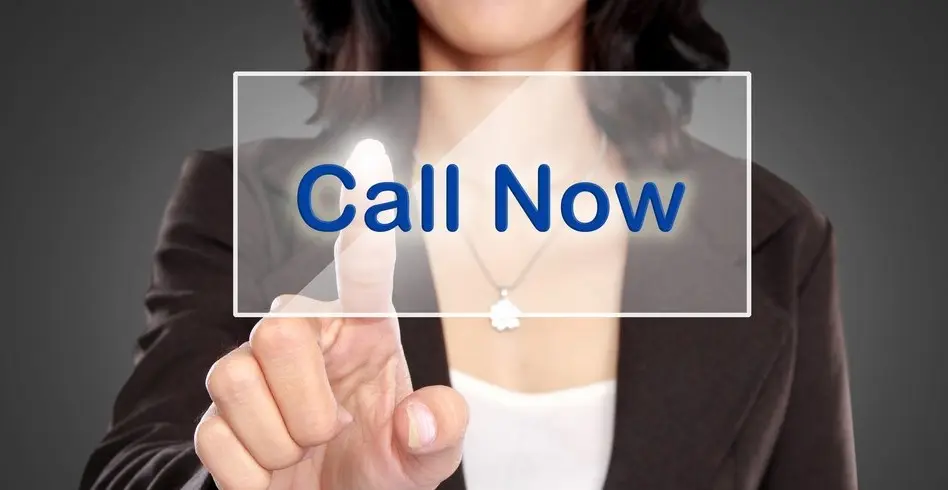
How we can help
If you need help locating free drug rehabs in Kentucky, we have listed below a few treatment programs that offer a program for dual-diagnosis clients. If you would like further information about the programs listed below, please give one of our counselors a call, 24 hours a day, 7 days a week. We will be able to assist you in answering any questions regarding addiction and what type of program would work best for your particular circumstances. If you need immediate placement into a dual-diagnosis treatment program in Kentucky, please call us directly and we will assist you immediately.1-800-513-5423
Elizabethtown Ky. Addiction Treatment
Florence, Kentucky Drug & Alcohol Rehabilitation
Georgetown, KY Substance Abuse Treatment
Lexington, Kentucky 30/90 Day Treatment Centers
Louisville, Kentucky Inpatient Drug Rehab Programs
Cumberland River Comp Care Center
Outpatient Addiction and Mental Health Center
317 Cumberland Avenue
Barbourville, KY 40906
Program Description– Cumberland River Comp Care addiction treatment center primarily focuses on the treatment of Bipolar disorders and drug or alcohol dependency. Treatment is offered for the following conditions, Anxiety disorders, dual diagnosis treatment for addiction and mental health concerns, severe depression ADHD, and persons with co-occurring mental and substance abuse disorders.
Payment accepted– Self Payment, Private Health Insurance pending verification of health benefits.
Park Place Recovery Center
822 Woodway Street
Bowling Green KY 42102
Drug Rehab – Addiction Treatment, Outpatient drug rehab center
Treatment Options–Park Place Recovery Center primarily focuses on the treatment for Bipolar disorders and drug or alcohol dependency. Treatment is offered for the following conditions, Anxiety disorders, dual diagnosis treatment for addiction and mental health concerns, severe depression ADHD, and persons with co-occurring mental and substance abuse disorders.
Payment type accepted– Self-payment, Medicaid, Medicare, State financed insurance, Private health insurance verification services, Military insurance, VA, TRICARE.
Adanta Behavioral Health Services
Dual Diagnosis Treatment Program
200 East Frazier Street
Columbia, KY 42728
Primary treatment– Adanta Behavioral Health Services in Columbia, KY offers Outpatient Programs for those who require a dual diagnosis treatment program for their addictions to drugs or alcohol.
Specialty services– Offering dual diagnosis treatment programs for severe anxiety, Manic Depression, PTSD, ADHD, and other mental disorders. Specializing in the treatment of co-occurring mental and substance abuse disorders in an outpatient setting.
Payment for services– Self-payment, Medicaid, Private health insurance upon verification of benefits.
Communicare Inc
Out-patient Dual Diagnosis Treatment Program
1311 North Dixie Highway
Elizabethtown, KY 42701
Primary treatment–Communicare offers substance abuse treatment in Elizabethtown Kentucky, with a primary focus on mental health and dual diagnosis treatment programs. Substance abuse treatment and mental health treatment for Bipolar disorder, severe anxiety, depression, PTSD, ADHD, and other mental health concerns.
Payment accepted for services– Self-payment, Medicaid, Private health insurance upon verification of benefits TriCare, Military insurance, VA.
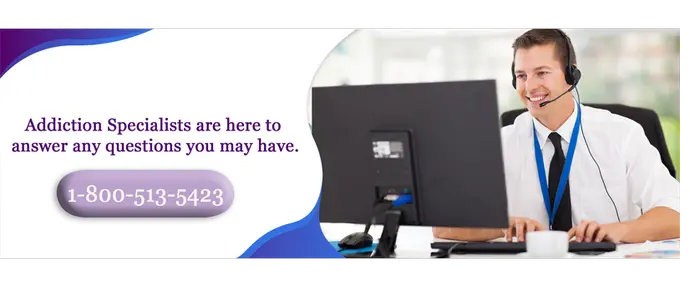
Our certified addiction specialists are here to answer any questions that you may have. Please call us toll-free today. We are here for you 24 hours a day, 7 days a week.
Sources
DUAL DIAGNOSIS HOME
Dual Diagnosis Wiki
Co-occurring disorders
HIPAA Act of 1996
Intensive Outpatient Programs (IOP) wiki
SAMHSA
Mental Health Substance Abuse Coverage
Erik Epp – Content Author
